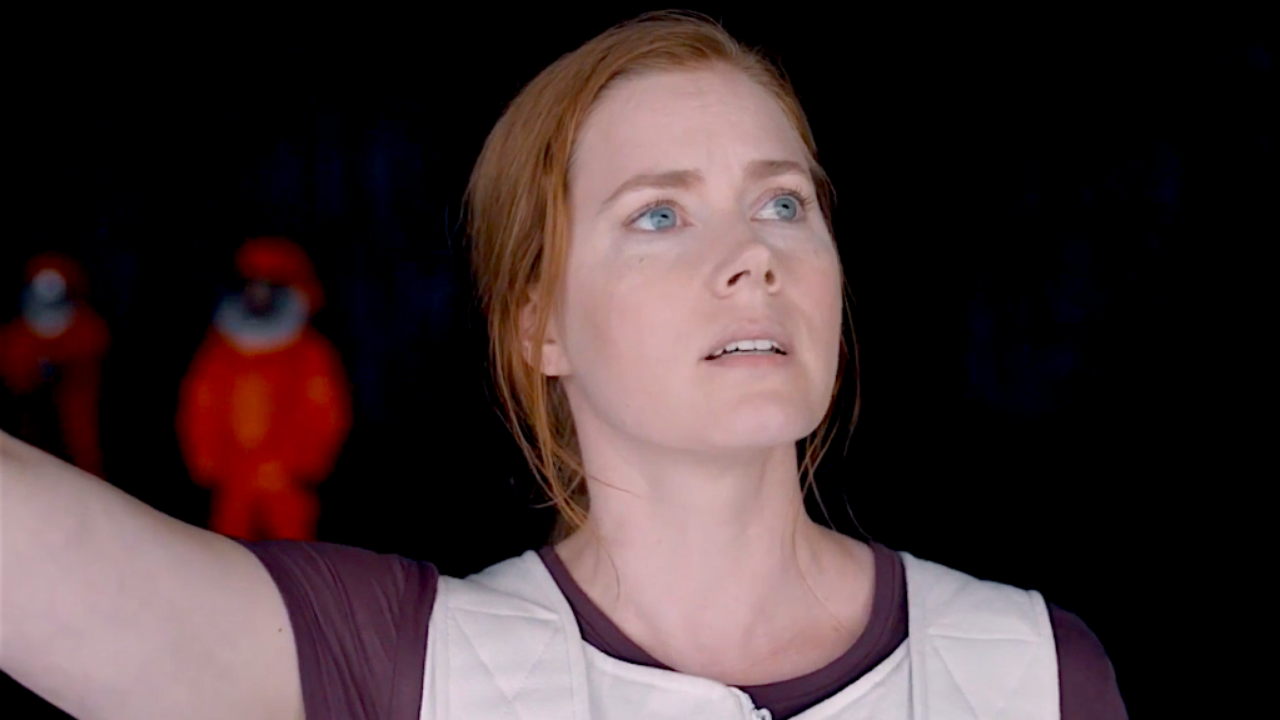
MPAA Rating: PG-13 | Rating: ★★★★
Release year: 2016
Genre: Drama, Sci-Fi Director: Denis Villeneuve
Arrival begins with a memory, a moment in time remembered by linguist Louise Banks (Amy Adams). The life and death of her daughter flash before us, and Louise’s internal pain remains a quiet constant for the remainder of the story. Reminiscent of the opening sequence in Pixar’s Up in its montage-like quality for setting an underlying tone of grief, Arrival is nevertheless filmmaker Denis Villeneuve’s most hopeful film, one which strikes a balance between the dreadful tension of the unknown and the experience of redemption.
When twelve alien spaceships arrive at various points across the globe, Louise is invited by the U.S. military to begin the communication process with the alien beings, later known as “heptapods” for their unique seven-sided forms. Alongside physicist Ian Donnelly (Jeremy Renner), Louise is given the task to communicate with a being that has no mouth, no facial features, and whose “written” language is wholly unlike our linear modes of writing. This is intellectual science-fiction, an interesting exploration of linguistics and communication. One character says, “Language is the first weapon drawn in a conflict.” My film critic friend Peter Chattaway noted that Arrival is like the postmodern version of Contact, a film which emphasized mathematical reasoning and science over and above language. In contrast, Arrival posits that our language is more foundational than math or science, even to the point of shaping our very worldviews and paradigms (the Sapir-Whorf hypothesis). The heptapods “write” in a logogram, a circular unit which essentially appears all at once, a whole thought/idea in a single form. As Louise puts it, it’s like writing a sentence with two hands, moving from beginning and end at the same time, meeting in the middle. This circular language serves as the transformative medium of the film, and offers Louise a new perspective on both her personal past and the future of humanity.
Arrival is both incredibly complex in its ideas while remaining strikingly simple in its narrative arc–the aliens arrive, communication begins, and everything changes. Villeneuve is a master of creating an atmosphere of dread and suspense; his previous film, Sicario, was the most suspenseful film from last year. For Arrival, The art direction and design of the alien craft and language, as well as the wonderfully haunting score from Jóhann Jóhannsson create an unsettling feel of encountering the Other, while Adams’ performance grounds the film with a sense of the intimate and personal. The film elicits parallels to Gravity in its grand sci-fi epic focusing on a mother and the loss of a child, but the thrills and intensity of Arrival stems not from explosions or spinning out of control in space, but in the frustrations of miscommunication. Beyond the communication attempts between alien and human, there are also conflicts between nations as various countries must attempt collaboration while maintaining a mutual mistrust. There’s a scene where a wall of TV screens all say “disconnected” as various nations unplug from the conversation; there’s a genuine sense of fear of the alien, both in the extraterrestrial and in the human sense. For all its alien premise, Arrival is a deeply humanistic film, showing both our capacity for mistrust and violence, as well as genuine connection and trust. As a person who is generally optimistic about human potential, as well as a word-and-grammar nerd, Arrival connected with me on a number of levels, and was deeply cathartic in a political season of unease and uncertainty about the future.
“There is no time.” This is what the heptapods tell Louise in a moment of urgency, an enigmatic message which takes on greater meaning as the film’s mystery is revealed. Past and future meet in ways I’ve never quite seen on film before. While I don’t want to spoil the film’s ending, having read Ted Chiang’s “The Story of Your Life,” which Arrival is based upon, I felt a bit like Louise in my experience of the film, fully knowing where the story was headed, yet enjoying it all the more for this knowledge. Arrival ends with a memory. It’s a beautiful filmic palindrome, and a timely one at that.
IMDB Listing: http://www.imdb.com/title/tt2543164/